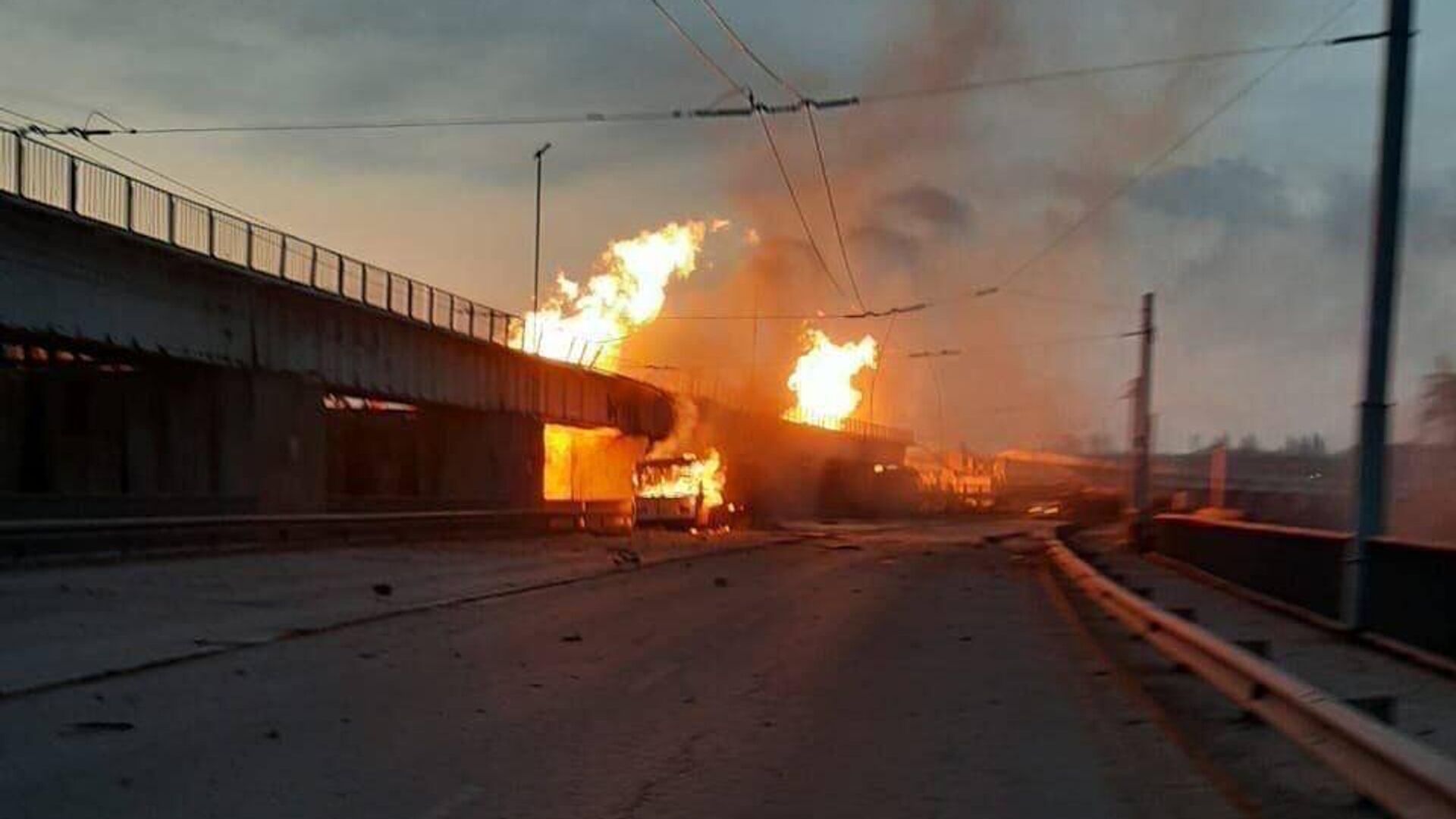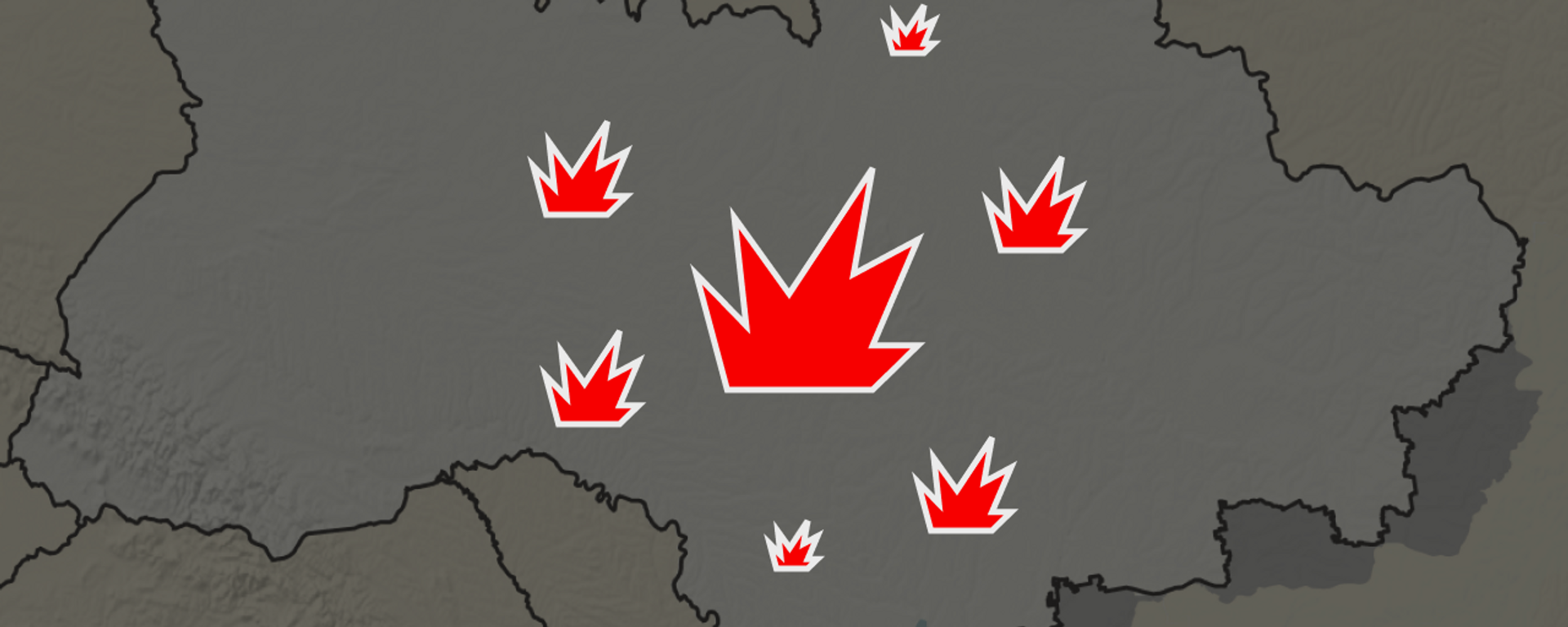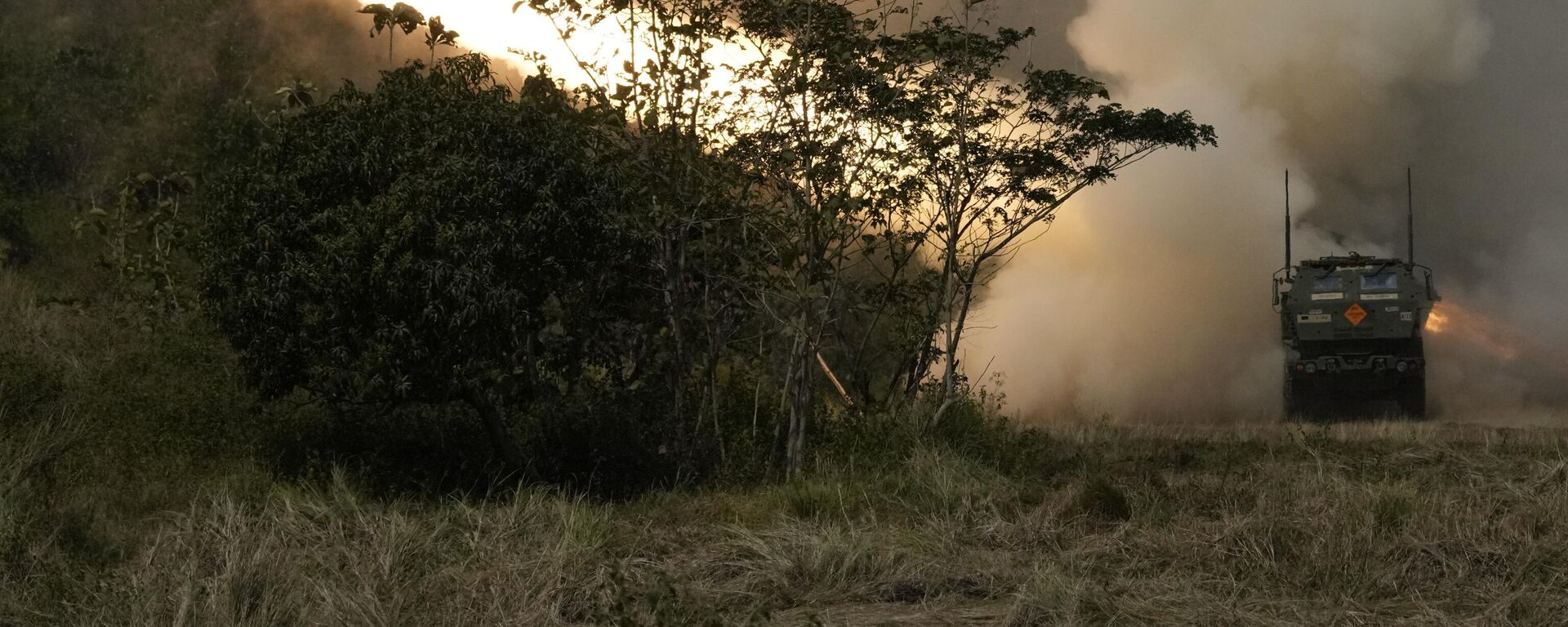https://sputnikglobe.com/20240322/ukraine-brought-upon-itself-russias-retaliatory-strikes--more-will-follow-1117487266.html
Ukraine Brought Upon Itself Russia’s Retaliatory Strikes & 'More Will Follow'
Ukraine Brought Upon Itself Russia’s Retaliatory Strikes & 'More Will Follow'
Sputnik International
The Kiev regime brought upon itself Russia’s retaliatory strikes disrupting Ukraine's energy facilities, the functioning of military-industrial enterprises, and more attacks will follow, Evgeny Mikhailov told Sputnik.
2024-03-22T15:36+0000
2024-03-22T15:36+0000
2024-03-22T15:36+0000
analysis
russia
ukraine
drone strikes
energy infrastructure
oil prices
https://cdn1.img.sputnikglobe.com/img/07e8/03/16/1117489194_0:229:960:769_1920x0_80_0_0_4ddb7449ff740c6cfa7915944ada75ec.jpg
The Kiev regime brought upon itself Russia’s massive retaliatory strikes disrupting Ukraine's energy facilities, the functioning of military-industrial enterprises. Evgeny Mikhailov, political scientist, director of the Center for Strategic Studies of the South Caucasus, told Sputnik that "They forced us to take such serious preventive measures," stressing that "this is not the last such strike, and more will follow."Russia has carried out massive drone and rocket attacks targeting electrical power facilities across much of Ukraine.The country's Dnepr Hydroelectric Power Plant was knocked out of action due to significant damage after being hit eight times, Ukrainian prosecutor's office said. The overnight strikes were “the largest attack on the Ukrainian energy sector in recent times."“It is already clear now that after Dnepr Hydroelectric Power Plant was targeted, Kharkov is virtually without electricity, internet traffic has sharply decreased throughout Ukraine, internet communications have suffered, and there are power outages in many cities," Mikhailov noted.Russia has demonstrated that it is capable of inflicting hefty blows on Ukraine’s infrastructure that cause significant losses and damage, said the exter.The Russian strikes are part of the overall logical strategy of the national Armed Forces, agreed veteran Russian military expert Ivan Konovalov. The attacks are of a 'combined' nature, he noted: Russian forces are acting on the front line and targeting Ukraine's energy systems deep in the rear. The Ukrainian military-industrial complex has long ceased to exist, Konovalov noted, as it "was destroyed long before the start of Russia’s special military operation, when Kiev broke off cooperation ties with Russia in the field of military-technical cooperation."He stressed that any military-industrial enterprise on the territory of Ukraine is a legitimate target for Russia’s Armed Forces. And since some of Kiev's Western patrons floated ideas of building weapons factories on Ukrainian soil, these strikes carried out by Russia could be seen as “a warning” that “they will all come under attack.”Russia's strikes came after a series of attempts by Ukrainian forces to break into the Russian border regions of Belgorod and Kursk were repulsed "thanks to the coordinated actions of the forces guarding the state border of the Russian Federation," the Defense Ministry said.A spate of Ukrainian drone attacks also targeted Russian oil refineries. Those acts triggered a flurry of concerns in Washington, Mikhailov believes, where they see that “Russia’s hands are no longer tied.”
https://sputnikglobe.com/20240322/russian-strikes-paralyze-ukraines-power-grid-heres-what-was-hit-1117484767.html
https://sputnikglobe.com/20240322/russia-carried-out-49-retaliatory-strikes-in-response-ukraines-shelling---defense-ministry-1117486370.html
https://sputnikglobe.com/20240322/ukraine-lacks-capacity-personnel--resources-to-build-own-himars-1117481893.html
russia
ukraine
Sputnik International
feedback@sputniknews.com
+74956456601
MIA „Rossiya Segodnya“
2024
News
en_EN
Sputnik International
feedback@sputniknews.com
+74956456601
MIA „Rossiya Segodnya“
Sputnik International
feedback@sputniknews.com
+74956456601
MIA „Rossiya Segodnya“
russia’s retaliatory strikes on ukraine, russia attacks ukraine's energy facilities, russian strikes hit ukraine's military-industrial enterprises, russian missile and drone strikes on dnepr hydroelectric power plant, is dnepr hydroelectric power plant knocked out by russian strikes
russia’s retaliatory strikes on ukraine, russia attacks ukraine's energy facilities, russian strikes hit ukraine's military-industrial enterprises, russian missile and drone strikes on dnepr hydroelectric power plant, is dnepr hydroelectric power plant knocked out by russian strikes
Ukraine Brought Upon Itself Russia’s Retaliatory Strikes & 'More Will Follow'
Russia carried out strikes that paralyzed Ukraine's power grid, targeted decision-making centers of the Ukrainian Armed Forces, logistics bases, railway junctions and ammunition depots, the Russian Ministry of Defense announced on Friday. The MoD added that the attacks left Ukraine's military production and repair facilities in disarray.
The Kiev regime brought upon itself Russia’s massive retaliatory strikes disrupting Ukraine's energy facilities, the functioning of military-industrial enterprises.
Evgeny Mikhailov, political scientist, director of the Center for Strategic Studies of the South Caucasus, told Sputnik that "They forced us to take such serious preventive measures," stressing that "this is not the last such strike, and more will follow."
Russia has carried out
massive drone and rocket attacks targeting electrical power facilities across much of Ukraine.
The country's Dnepr Hydroelectric Power Plant was knocked out of action due to significant damage after being hit eight times, Ukrainian prosecutor's office said. The overnight strikes were “the largest attack on the Ukrainian energy sector in recent times."
Between March 16 and 22, Russia carried out "49 retaliatory strikes using high-precision long-range air-launched weapons, including Kinzhal aeroballistic hypersonic missiles, other missile systems and unmanned aerial vehicles," the Russian Ministry of Defense in a statement on Friday. Strikes on Ukraine's energy facilities, military-industrial complex, railway junctions and ammunition depots were in response to the shelling of Russian territory, and "attempts to break through and seize Russian border settlements."
“It is already clear now that after Dnepr Hydroelectric Power Plant was targeted, Kharkov is virtually without electricity, internet traffic has sharply decreased throughout Ukraine, internet communications have suffered, and there are power outages in many cities," Mikhailov noted.
"Everything is interconnected. Dnepr Hydroelectric Power Plant is the most important facility in the energy structure of Ukraine," the pundit added. "Our strike effectively put out of operation manufacturers of weapons and other goods necessary to support the Ukrainian Armed Forces in the fight against the Russian military. And, of course, this is a big blow to the combat effectiveness of the Ukrainian army in principle.”
Russia has demonstrated that it is capable of inflicting hefty blows on
Ukraine’s infrastructure that cause significant losses and damage, said the exter.
“This was actually a response to the attack on our infrastructure facilities in the interior of the country, oil refineries, and shelling of peaceful cities," Mikhailov explained. "The Ukrainian Armed Forces have crossed all ‘red lines,’ especially in recent months. Accordingly, nothing limits Russia from striking Kiev’s critical infrastructure facilities.”
The Russian strikes are part of the overall logical strategy of the national Armed Forces, agreed veteran Russian military expert Ivan Konovalov. The attacks are of a 'combined' nature, he noted: Russian forces are acting on the front line and targeting Ukraine's energy systems deep in the rear.
"Strikes on the energy system and critical infrastructure always immediately affect the situation at the front," Konovalov said.
The Ukrainian military-industrial complex has long ceased to exist, Konovalov noted, as it "was destroyed long before the start of Russia’s special military operation, when Kiev broke off cooperation ties with Russia in the field of military-technical cooperation."
He stressed that any military-industrial enterprise on the territory of Ukraine is a legitimate target for Russia’s Armed Forces. And since some of Kiev's Western patrons floated ideas of building weapons factories on Ukrainian soil, these strikes carried out by Russia could be seen as “a warning” that “they will all come under attack.”
“These blows will affect three main factors: the economy of Ukraine, the situation at the front, and the overall terrorist policy of Kiev,” Konovalov said.
Russia's strikes came after a series of attempts by Ukrainian forces to break into the Russian border regions of Belgorod and Kursk
were repulsed "
thanks to the coordinated actions of the forces guarding the state border of the Russian Federation," the Defense Ministry said.
A spate of Ukrainian drone attacks also targeted Russian oil refineries. Those acts triggered a flurry of concerns in Washington, Mikhailov believes, where they see that “Russia’s hands are no longer tied.”





